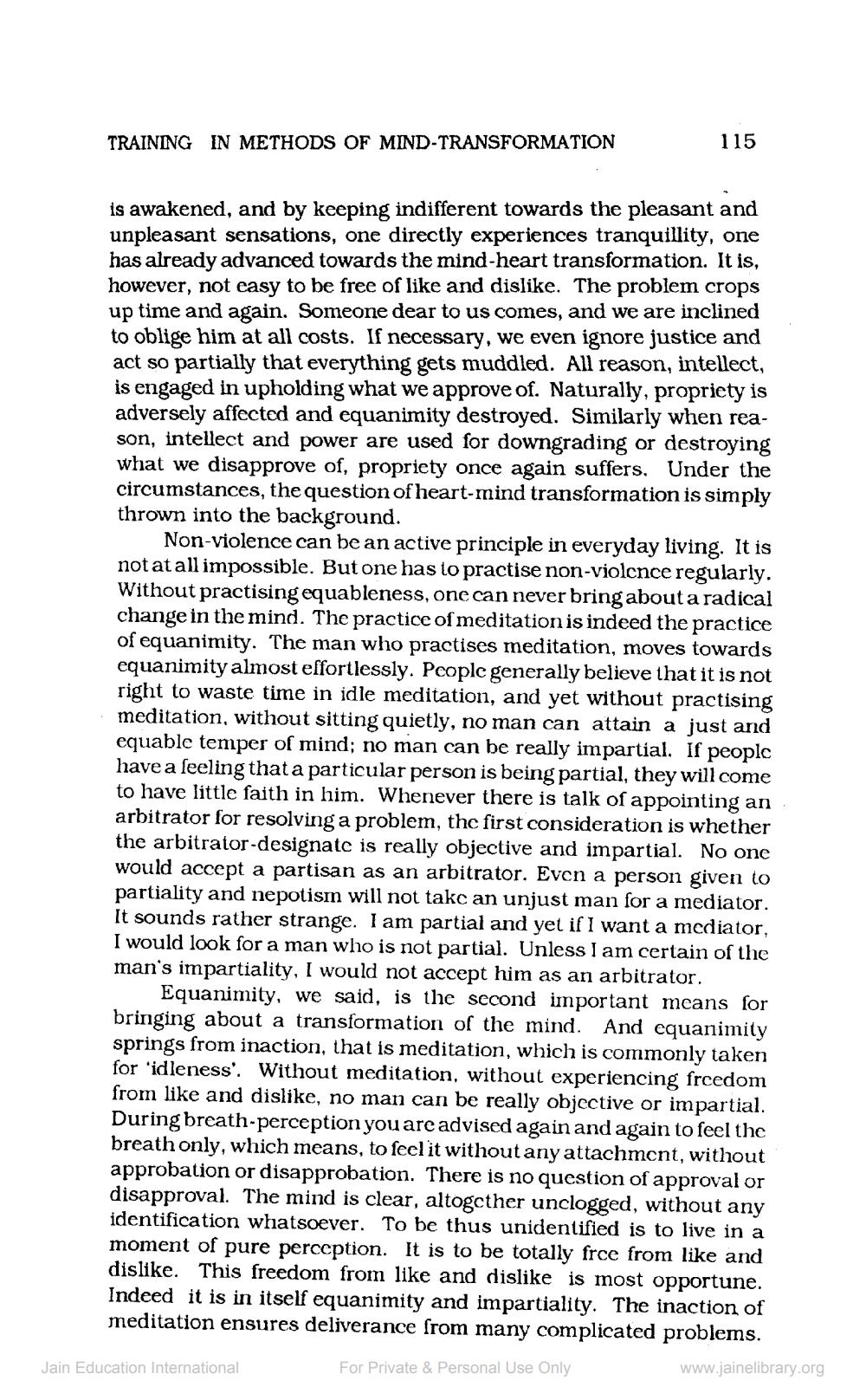________________
115
TRAINING IN METHODS OF MIND-TRANSFORMATION
is awakened, and by keeping indifferent towards the pleasant and unpleasant sensations, one directly experiences tranquillity, one has already advanced towards the mind-heart transformation. It is, however, not easy to be free of like and dislike. The problem crops up time and again. Someone dear to us comes, and we are inclined to oblige him at all costs. If necessary, we even ignore justice and act so partially that everything gets muddled. All reason, intellect, is engaged in upholding what we approve of. Naturally, propriety is adversely affected and equanimity destroyed. Similarly when reason, intellect and power are used for downgrading or destroying what we disapprove of, propriety once again suffers. Under the circumstances, the question of heart-mind transformation is simply thrown into the background.
Non-violence can be an active principle in everyday living. It is not at all impossible. But one has to practise non-violence regularly. Without practising equableness, one can never bring about a radical change in the mind. The practice of meditation is indeed the practice of equanimity. The man who practises meditation, moves toward equanimity almost effortlessly. People generally believe that it is not right to waste time in idle meditation, and yet without practising meditation, without sitting quietly, no man can attain a just and equable temper of mind; no man can be really impartial. If people have a feeling that a particular person is being partial, they will come to have little faith in him. Whenever there is talk of appointing an arbitrator for resolving a problem, the first consideration is whether the arbitrator-designate is really objective and impartial. No one would accept a partisan as an arbitrator. Even a person given to partiality and nepotism will not take an unjust man for a mediator. It sounds rather strange. I am partial and yet if I want a mediator, I would look for a man who is not partial. Unless I am certain of the man's impartiality, I would not accept him as an arbitrator.
Equanimity, we said, is the second important means for bringing about a transformation of the mind. And equanimity springs from inaction, that is meditation, which is commonly taken for 'idleness'. Without meditation, without experiencing freedom from like and dislike, no man can be really objective or impartial. During breath-perception you are advised again and again to feel the breath only, which means, to feel it without any attachment, without approbation or disapprobation. There is no question of approval or disapproval. The mind is clear, altogether unclogged, without any identification whatsoever. To be thus unidentified is to live in a moment of pure perception. It is to be totally frce from like and dislike. This freedom from like and dislike is most opportune. Indeed it is in itself equanimity and impartiality. The inaction of meditation ensures deliverance from many complicated problems.
Jain Education International
www.jainelibrary.org
For Private & Personal Use Only




